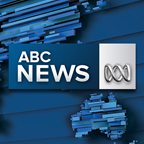
Prime Minister Scott Morrison has announced airlines will be required to collect more detailed passenger information in order to help contact tracing efforts should a case of COVID-19 be confirmed on a domestic flight.
"From 1 October, part of the mandatory manifest information will be name, email address, a mobile contact number, and a state of residence," he said following a National Cabinet meeting on Friday.
The PM said the "mandatory data collection" was designed to assist efforts to contact people who had travelled between states and territories.
How is that different to what happens now?
While you might provide an email address and phone number every time you book a flight, not everyone does.
Airlines have been providing governments with passenger lists for affected flights, but there may have been some instances where not enough information was available to effectively contact trace.
On Friday, Queensland Premier Annastacia Palaszczuk said contact tracers in her state had struggled to access all the information they required.
As part of the booking process on Jetstar's website, customers are required to enter their contact details.
The company keeps that information in case it ever needs to contact customers with flight information and, upon request, provides it to the Government and health officials for contact tracing purposes.
Jetstar's current booking process includes the mandatory data required by the Government.
Qantas will now update its booking process to meet the new standard.
Virgin provided manifests to health officials, police
Virgin said the company did ask for email addresses from customers at the time of booking and a new COVID Safe pre-departure form requests a phone number
"Since the COVID pandemic began, we have introduced significant measures to increase contact information for all domestic passengers, and all passengers are now required to fill in a COVID Safe pre-departure form," a Virgin Australia spokesperson said.
"Throughout the pandemic, we have been working collaboratively with the relevant health departments and have complied with all requests for passenger information and manifests in the event of a confirmed COVID case on our flight."
The company said it had also provided "basic manifests" to police to assist with border control measures.
"We will comply with the new manifest measures announced today and will continue to work constructively with all levels of Government to keep our passengers and communities safe during this time," the spokesperson said.
According to the Civil Aviation Act, flight operators are required to compile a "passenger list", but the legislation requires limited information.
"The list shall contain the aircraft registration, the names of passengers carried, the date and estimated time of departure, and the places of embarkation and destination."
The PM said the Federal Department of Infrastructure was working with airlines to put the new arrangements in place.
"That information will be treated sensitively by the states and territories in the same way that public health information is always treated," he said.
Confirmed COVID-19 cases on domestic flights
Flights with confirmed cases of COVID-19 are published by state health authorities.
According to New South Wales Health, there were nine domestic flights that passed through the state that had confirmed cases of COVID-19 from May to August.
Health authorities list the rows considered to be "close contacts" of the confirmed case.
Those who have been in close contact with a confirmed case are required to self-isolate for 14 days.
The Department of Infrastructure has been contacted for comment.




























